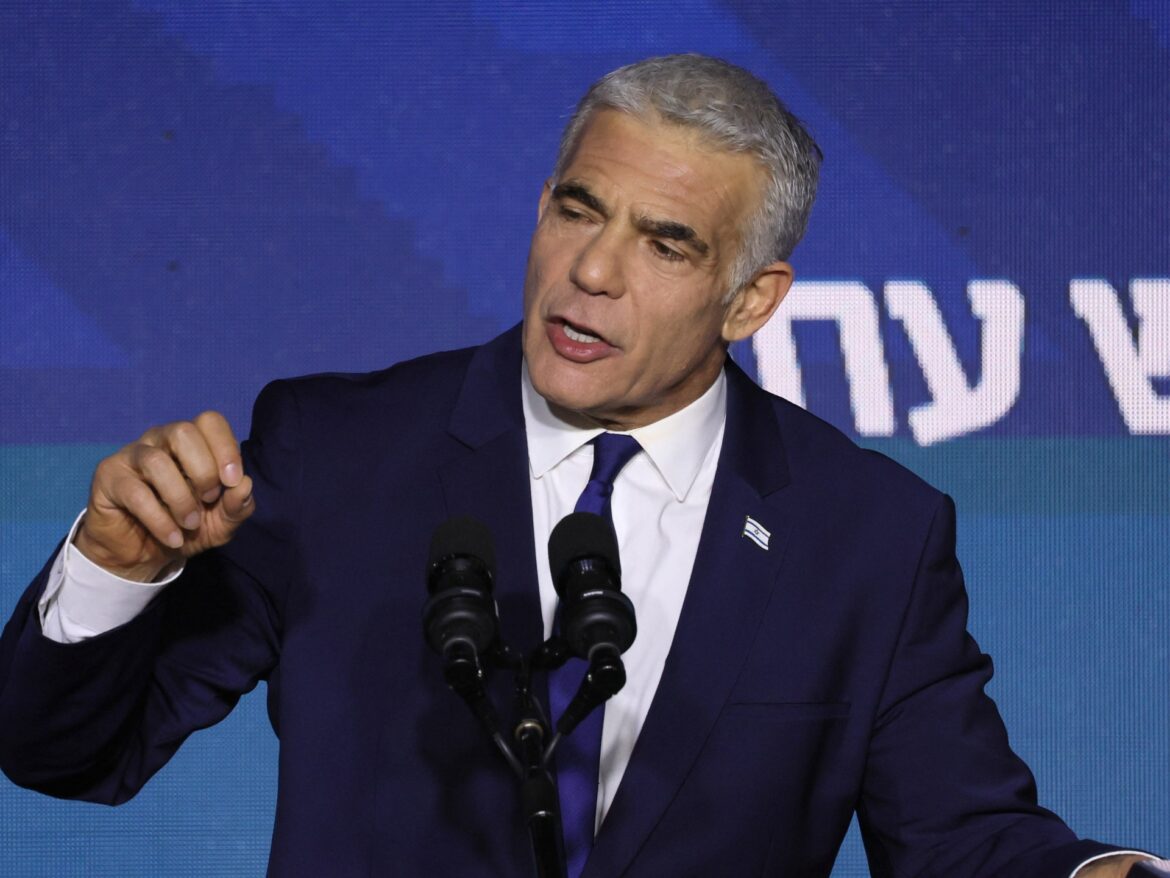Israeli opposition leader Yair Lapid said that Israel has a powerful army and a weak, miserable government, against the backdrop of the conflict occurring between members of the mini-ministerial council due to the formation of a team to investigate the October 7 attack.
Lapid criticized the recent cabinet session, describing it as a new, unprecedented decline, saying that ministers are trying to insult Chief of Staff Herzi Halevy and Prime Minister Benjamin Netanyahu is doing nothing, adding that this is not a government but a “national disaster.”
Lapid added that National Security Minister Itamar Ben Gvir, who supports terrorism and did not serve in the army, is attacking Saul Mofaz, the worthy leader and hero in Israel, according to him.
In turn, Benny Gantz, a member of the Israeli War Council, said that the attack on the Chief of Staff in the Council of Ministers was politically motivated, and the Prime Minister must choose unity and security or politics.
For its part, the Likud Party said that it expects Gantz to stop looking for excuses to break his promise not to withdraw from the emergency government until the war ends.
Israeli Army Radio also quoted Minister Itamar Ben Gvir as saying, “Even in the ministerial council, Gantz continues on the path to failure.”
Sharp disagreements
The Israeli “Wala” website had said that the meeting of the Israeli mini-ministerial council ended after sharp disagreements between the Chief of Staff and a number of ministers, due to the formation of a team to investigate the events of October 7, which prompted Netanyahu to break up the meeting that was scheduled to discuss some stage. After the war.
Israeli Channel 12 revealed that a dispute broke out between Netanyahu and Defense Minister Yoav Galant, against the backdrop of Netanyahu preventing the heads of the Mossad intelligence agency, David Barnea, and the Shin Bet internal security service, Ronen Bar, from attending a war cabinet session.
The channel explained that Gallant told Netanyahu that preventing such meetings would harm Israel’s security, while Netanyahu and Gallant denied the existence of such differences, and stressed that they were working together to achieve victory in the war.
The website added that ministers in the mini-council attacked the Chief of Staff because of the appointment of Shaul Mofaz – who supervised the implementation of the unilateral withdrawal plan from Gaza in 2005 – to head the investigation team.
The investigation team includes a number of former security officials, including Mofaz, in addition to the former head of the Military Intelligence Division, Zeevi Farkash, and the former commander of the Southern Army Command, Sami Turgeman.
For its part, Israeli Radio reported that military officials left the small council meeting after the ministers attacked the Chief of Staff.
The Israeli Army Chief of Staff had decided to form a security team to begin conducting an investigation into the failures of the October 7 events, in their security, military and intelligence aspects.
Israeli media said that the investigations will also include the conduct of military operations during the war on Gaza.

Admitting negligence
Netanyahu did not admit to any personal negligence, unlike some senior officials, and spoke only generally about the need to hold accountable all decision-makers involved in setting the policy adopted by Israel towards Gaza, including those who preceded his long term in office.
Two far-right ministers in the Israeli government expressed their annoyance at the inclusion of Shaul Mofaz in the military investigation committee.
The two ministers, Itamar Ben Gvir and Bezalel Smotrich, accused another former general helping in the investigation of weakening the army by supporting reservists who protested Netanyahu’s judicial changes last year.
“These are the people who should be investigated, not included in the investigation committee,” Ben Gvir said in a post on social media.
Also in a post on social media, Smotrich said that he did not oppose the military investigation aimed at improving military performance, but he added that any investigation into the reasons that led to the events of October 7, and into security practices in general, requires the contribution of the Council of Ministers.



